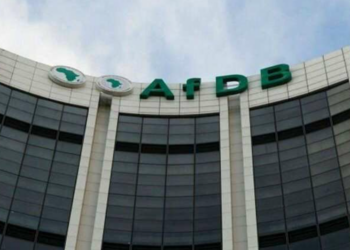Nigeria’s foreign exchange (FX) reserves have recorded an increase of $591.78 million in the month following the government’s $2.2 billion Eurobond auction on December 2, 2024.
The reserves rose from $40.292 billion on December 2 to $40.884 billion on January 3, 2025, reflecting a month-on-month growth of 1.47%.
This growth highlights the effectiveness of the country’s strategic measures in stabilizing its foreign exchange position amid mounting external and internal challenges.
The proceeds from the Eurobond auction likely served as a vital financial cushion, helping to bolster the nation’s external reserves during a critical period.
What does the data say
- The data from the Central Bank of Nigeria (CBN) highlights a steady and consistent rise in the reserves over the one-month period. On December 2, the reserves stood at $40.292 billion, a figure that marked the baseline after the Eurobond auction. Over the next few weeks, the reserves grew incrementally, reaching $40.376 billion by December 9, reflecting an $84 million increase. This initial rise signified the immediate impact of the Eurobond proceeds entering the financial system.
- The pace of growth accelerated in mid-December, with reserves climbing from $40.525 billion on December 12 to $40.790 billion by December 19. This $265 million increase within just seven days was indicative of intensified foreign exchange inflows, likely driven by oil revenues and strategic CBN interventions.
- By the end of December, reserves had reached $40.884 billion, marking the highest point during the period. The stability observed in the last week of December reflects the government’s ability to manage inflows efficiently while addressing key fiscal challenges. As of January 3, 2025, the reserves remained steady at $40.884 billion.
- When compared to the previous year, Nigeria’s FX reserves have grown significantly. On January 3, 2024, the reserves stood at $33.042 billion. By January 3, 2025, this figure had surged to $40.884 billion, representing a substantial year-on-year increase of $7.84 billion, or 23.74%. This growth highlights the success of the government’s efforts to secure external financing while leveraging improved global economic conditions to boost reserve levels.
Implications for the economy
- The rise in FX reserves holds several positive implications for Nigeria’s economy. Firstly, it enhances the country’s ability to meet external payment obligations, including debt servicing and import financing.
- With higher reserves, Nigeria is better positioned to manage exchange rate volatility and stabilize the naira, thereby boosting investor confidence and encouraging foreign direct investment.
- Secondly, the increase in reserves provides a buffer against external shocks, such as fluctuations in global oil prices or changes in international financial conditions.
- This is particularly important given Nigeria’s reliance on oil revenues, which makes its economy vulnerable to external economic disruptions.
- Finally, the reserve growth improves Nigeria’s creditworthiness on the global stage. It sends a strong signal to international lenders and investors that the country is capable of meeting its financial commitments, which is critical for attracting further foreign investment and financing.
What you should know
Nigeria raised $2.2 billion through its Eurobond auction in December last year, marking a pivotal moment in the country’s ongoing efforts to address its growing fiscal deficit.
This auction, which saw the issuance of two bonds with varying tenors, follows the government’s return to the international capital markets for the first time since March 2022.
The funds raised will primarily be used to support Nigeria’s 2024 budget, which is under strain due to persistent revenue shortfalls and mounting public spending.
- While Nigeria recorded a total subscription of over $9 billion, only $2.2 billion was allotted.
- The allotments are $700 million for the 6.5-year bond priced at 9.625% and a larger $1.5 billion for the 10-year bond priced at 10.375%.
- While the growth in FX reserves is a welcome development, sustaining this trend poses significant challenges. Nigeria’s heavy reliance on external borrowings, such as Eurobonds, raises concerns about the long-term sustainability of its fiscal policies.
- The rising debt profile, coupled with the high cost of servicing these debts, could strain government revenues and limit fiscal flexibility in the future.
- To address these challenges, Nigeria must prioritize structural reforms aimed at diversifying its sources of foreign exchange. Reducing dependence on oil revenues is crucial for ensuring long-term economic stability.
Expanding non-oil exports and promoting foreign direct investment will be key strategies in this regard.
Also, fiscal discipline will be essential to ensure that funds raised from external borrowings are used efficiently. Investments in critical infrastructure and economic development projects will help boost productivity and create a more resilient economy.























